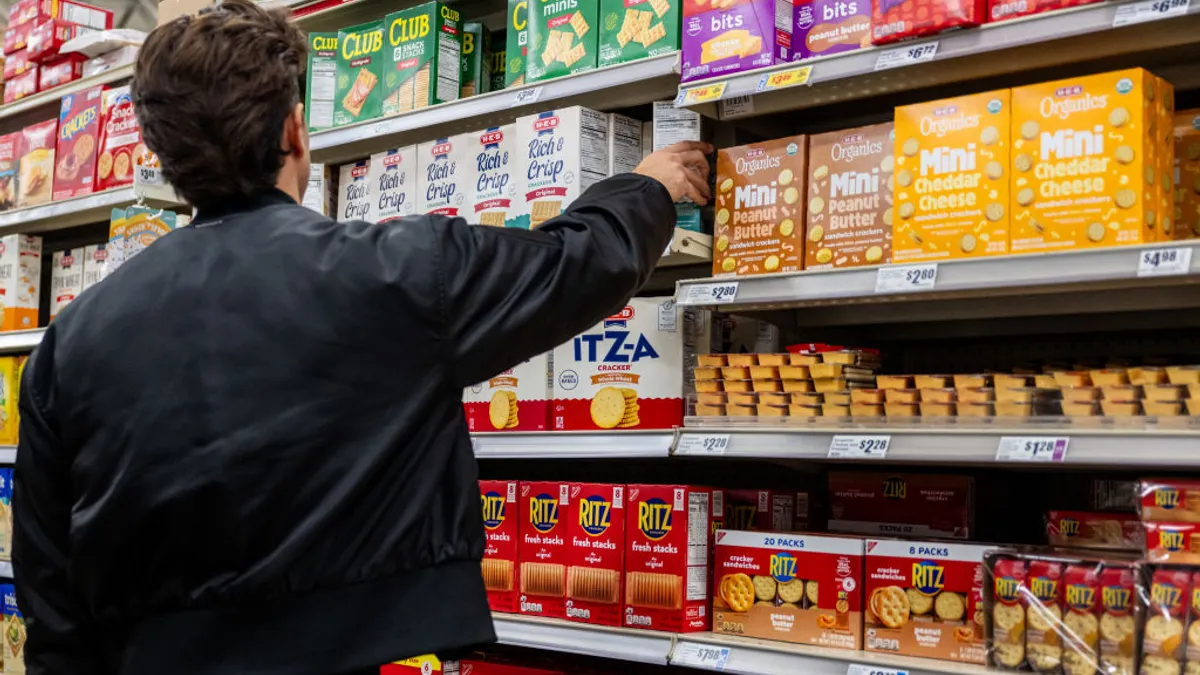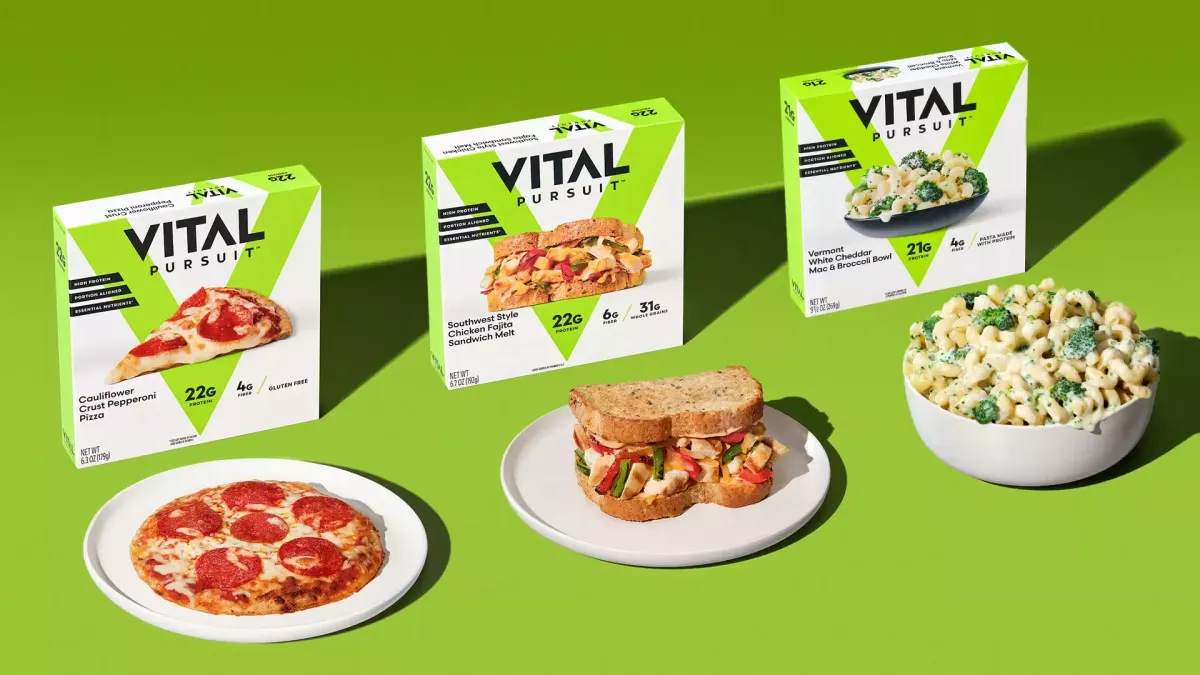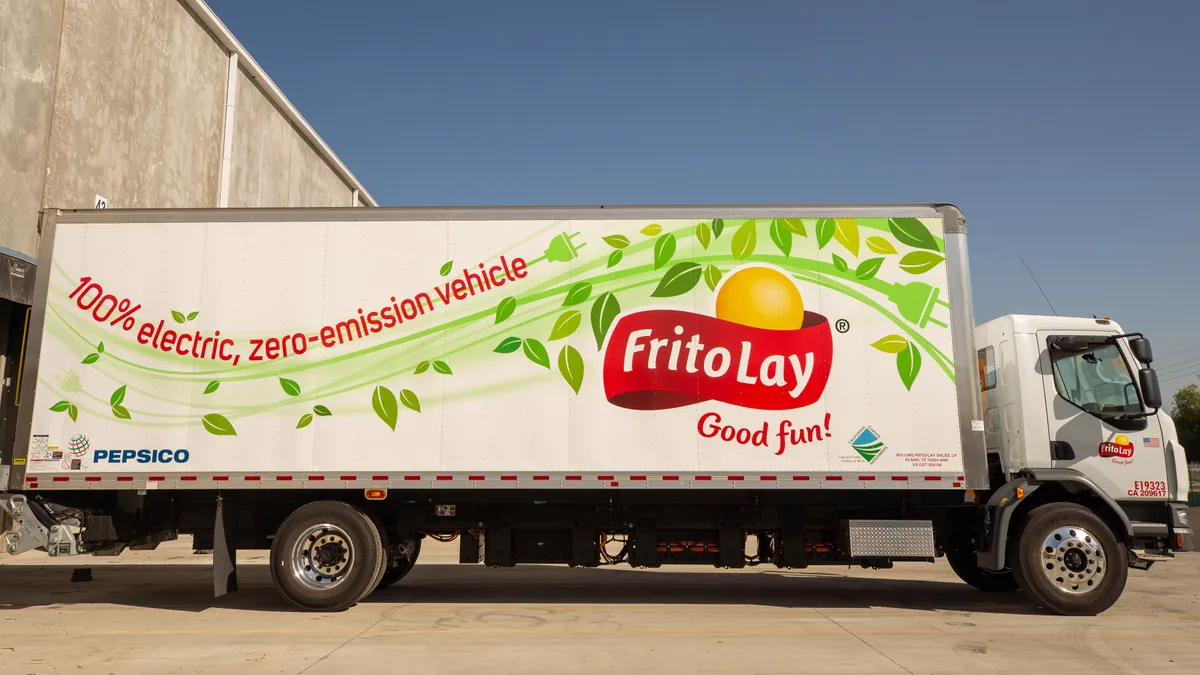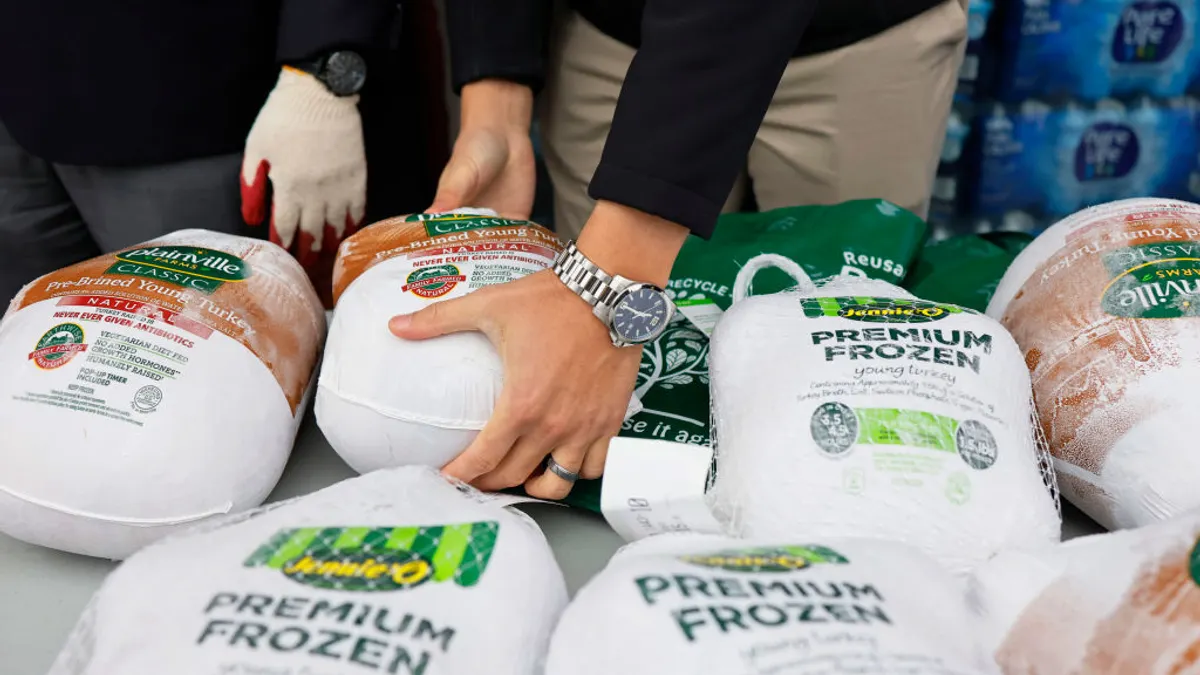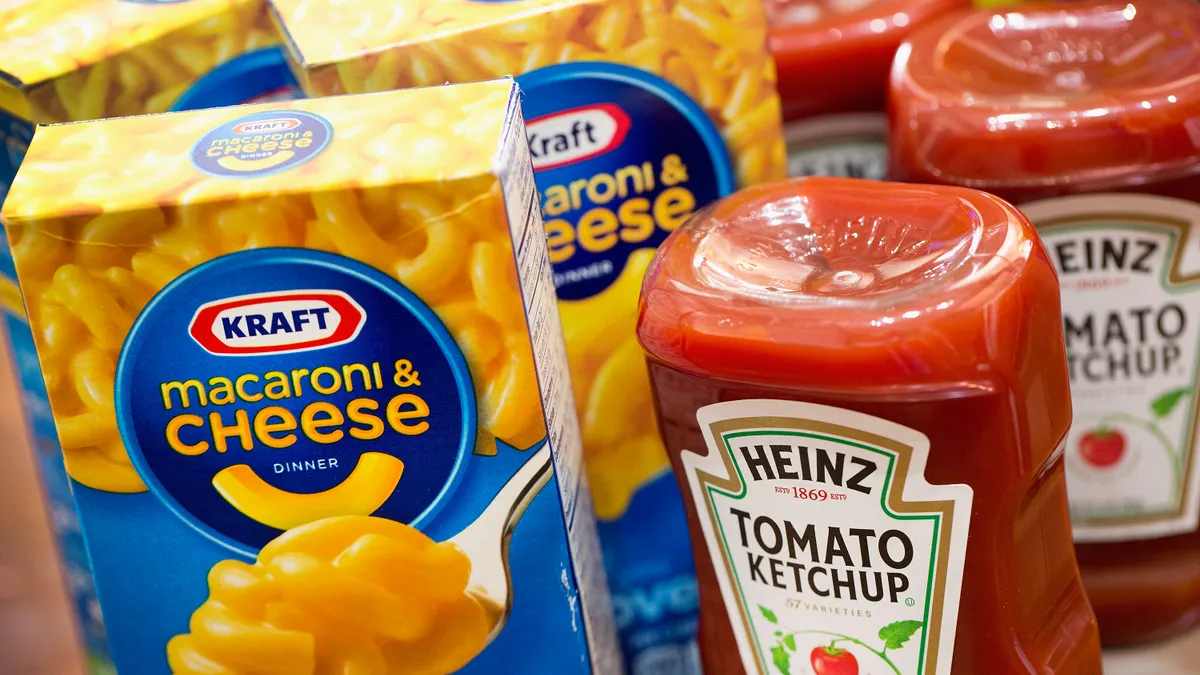Changing consumer demands and a number of other issues are forcing the food industry to evolve, perhaps now more than ever. To see those how those changes are taking shape, you need look no further than the industry's executive offices.
Here are, based on their decisions and headlines so far this year, seven chief executives in the food industry that we think bear watching in 2014. Whether they are seeking investors, eyeing potential acquisitions, navigating through PR minefields, or maneuvering into new markets, these CEOs will make choices in the coming months that will determine the destinies of their companies. As you can see, some of them are better equipped for that task than others, but all are fascinating in their own way.
1. Donnie Smith, Tyson Foods
Look for Donnie Smith, president and chief executive officer of Tyson Foods Inc., to have a full plate this year. But maybe a little less pork, due to a highly contagious virus that is killing pigs.
Tyson, the largest meat producer in the U.S., announced in January that it expects pork supplies to drop 2% to 4% during its fiscal year. That’s because the Porcine Epidemic Diarrhea virus, which has spread to 23 states since it was discovered in the U.S. in April 2013, kills 80% or more of the piglets it infects. About 30% of the sows in the U.S. have been infected, according to Smith. Fewer pigs will mean higher prices for Tyson and other pork processors.
Smith, who joined Tyson in 1980 and was appointed CEO in 2009, is also steering the company around a potential animal cruelty public relations crisis—so far with success. In November, an animal rights group released a video showing brutal abuse of pigs at a Tyson-contracted farm in Oklahoma. Tyson cut ties with the farm almost immediately and then in January sent a letter outlining five initiatives for its other pork suppliers to adopt to improve the treatment and living conditions of pigs.
2. Paul Bulcke, Nestle
This month, Nestle announced disappointing sales growth in 2013, below analyst expectations and the company’s worst in four years. And the company’s chief executive, Paul Bulcke, said to expect more of the same in 2014, with some improvement in the second half of the year. Bulcke says the world’s biggest food and drink maker had minimal growth in the developed world and below-normal growth in emerging markets.
So what is Bulcke doing about it? Cue the M&A theme song.
Nestle has been selling off some small and/or underperforming units, including the PowerBar sports nutrition business, most of its Jenny Craig dieting business, its stake in Givaudan flavorings and fragrance, and a large piece of its 20% stake in L’Oreal, which will be applied to a share buyback program.
As part of its L’Oreal deal, Nestle is taking over L’Oreal’s half of Galderma, a dermatology joint venture with Nestle with products that include prescription drugs, wrinkle treatments and other skin products, and hair and nail products.
Bulcke says Nestle is moving into the health and wellness market as a “core of our strategy” and “a major, major platform of growth,” because the sector’s growth and profit margin potential is better than the traditional food markets.
3. Joshua Tetrick, Hampton Creek Foods
Will Joshua Tetrick be the one to finally make the chicken-or-the-egg question irrelevant? The chief executive and founder of Hampton Creek Foods, developer of plant-based egg substitutes, has certainly attracted enough high-profile investors to make the real-egg industry nervous. Count Bill Gates, Peter Thiel, and Al Gore among the believers.
Tetrick’s pitch: His plant-based formula for fake-egg ingredients is cheaper than the real thing, plus it’s cholesterol-free. And, it doesn’t rely on cooped-up chickens or “release large amounts of greenhouse gases into your precious air.”
The incredible edible chicken-egg industry has fought back with Google search advertisements. The American Egg Board urged consumers to “accept no substitutes,” casting aspersions on food ingredients without a “clean label.” Such as “egg.”
4. Indra Nooyi, PepsiCo
PepsiCo chief executive Indra Nooyi charmed the media with her disclosure in a January interview of an unusual method she uses to build relationships with key employees and to recruit new employees: writing and calling their parents.
And in January, Nooyi said that her company had gone through a difficult transition, from “fun-filled” products to emphasizing healthier, “good-for-you” foods. And she had also fought for reducing salt, sugar, and fat in the company’s “fun-filled” products.
We’ll see more how that transition, and her management techniques, are working in 2014 for the largest food and beverage company in the U.S. This month, PepsiCo reported that it had met its financial goals for 2013, with net income rising 4.9% in the fourth quarter.
On the same day PepsiCo announced its earnings, Nooyi also rejected a proposal from activist investor Nelson Peltz to split off the beverages business, which has been lagging, from the rest of the company. Nooyi had started reviewing the businesses in 2012. She also reported that a cost-cutting plan will cut $5 billion in expenses in five years, beginning in 2015.
Nooyi, ranked No. 2 on Fortune 50 Most Powerful Women in business list, ascended to the CEO role at PepsiCo in 2006.
5. Daniel Birnbaum, SodaStream
Judging from their latest headlines, Daniel Birnbaum and do-it-yourself soda maker SodaStream should certainly be interesting to follow in 2014.
In January, the company announced that Scarlett Johansson would be its celebrity endorser. Then its stock plummeted after it reported disappointing preliminary earnings—its biggest decline since 2011—and Birnbaum reported tough sailing ahead for the first half of 2014.
Then the company’s original Super Bowl ad was rejected because Johansson reportedly uttered the phrase “sorry, Coke and Pepsi,” and the company had to use a censored commercial instead.
Then late in January, SodaStream signed a deal with Welch's to launch new flavors of soda drink concentrates for SodaStream’s in-home beverage-making machines in the second half of 2014. January also saw Johansson resign as ambassador for Oxfam because the charity objects to SodaStream operating out of an Israeli-occupied West Bank settlement.
Birnbaum told the AP that he thought the Oxfam controversy would help his company, along the lines of the any-publicity-is-good-publicity thinking. We’ll see.
6. Bernardo Hees, Heinz
Bernardo Hees joined Heinz as chief executive officer in June, when the $23-billion acquisition by 3G Capital and Berkshire Hathaway was consummated.
He was previously CEO at Burger King, where he earned a reputation as a cost-cutter, beginning after 3G bought the company. At Heinz, Hees commenced with the slashing, and by Oct. 27, the end of its fiscal quarter, 2,000 corporate and field positions had been eliminated. Plans to close three plants were going to cost the company nearly $200 million, and sales had fallen 3.7% for the quarter.
Industry observers had considered Heinz lean before the acquisition, with little to no more room for cuts, thanks to cost cutting pushed in previous years by activist investor Nelson Peltz. So keep an eye on Hees and the new owners in 2014 to see if they can prove the industry observers wrong.
7. Brian Kelley, Green Mountain Coffee Roasters
Brian Kelley joined Green Mountain Coffee Roasters as chief executive in September 2012 from Coca-Cola. Fast-forward 14 months, and Coca-Cola is buying 10% of the company for $1.25 billion.
It’s an example of some good decisions overseen by Kelley: A great deal for both sides. Coca-Cola gets its brands into the rapidly expanding make-your-own-at-home beverage market, responding to SodaStream’s foray into the market. And Green Mountain gets Coca-Cola’s backing and as it prepares to introduce its Keurig Cold beverage machine to consumers in its fiscal year 2015.
Another good decision overseen by Kelley: Asking shareholders to approve a name change for the company to Keurig Green Mountain, getting the famous single-serving coffee-making machine in the company’s title.
And late last year, Kelley told analysts that the company would introduce a Keurig 2.0 system that would lock out the copycat portion packs that have been stealing market share. Good idea. Will Kelley’s track record continue through 2014?
Would you like to see more food news like this in your inbox on a daily basis? Subscribe to our Food Dive email newsletter! You may also want to read Food Dive's look at 6 food brands going for Olympic gold.




